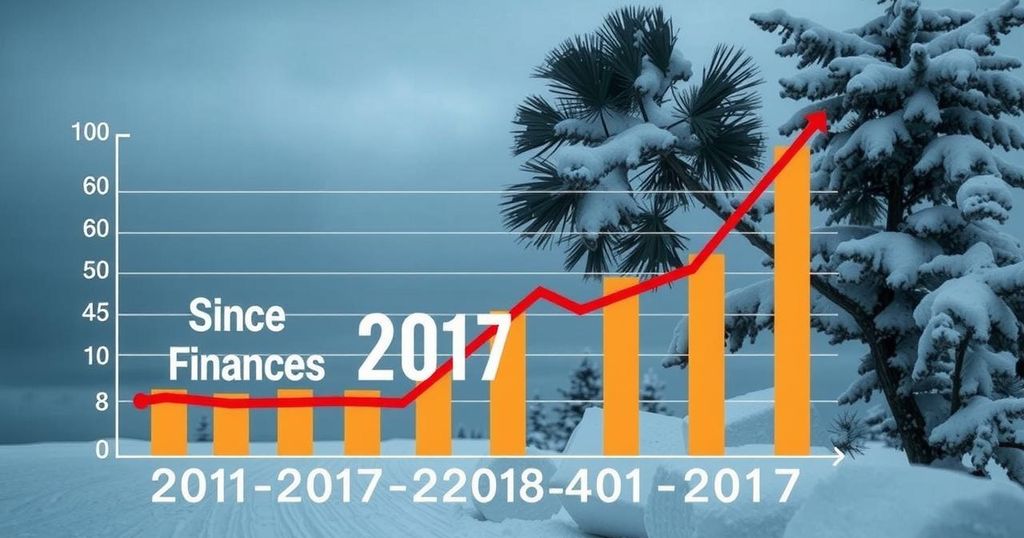Record Insured Losses from Natural Catastrophes Aligned with Climate Change Trends

Insured losses from natural disasters reached an all-time high of $140 billion in 2023, driven predominantly by Hurricanes Milton and Helene, as well as severe flooding in Dubai and Valencia. These events follow a year marked by record global temperatures and are contributing to an increasing trend of extreme weather phenomena. Insurers are beginning to reassess risk in high-damage areas as the ramifications of climate change continue to unfold.
Natural disasters have inflicted record insured losses, reaching $140 billion in the past year—marking the highest figures since 2017 and more than double the 30-year average, as reported by Munich Re. Significant contributors included Hurricanes Milton and Helene and catastrophic flooding in Dubai and Valencia, which collectively resulted in numerous fatalities and substantial financial damage. The initial months of this year have already been marked by destructive wildfires in Los Angeles, threatening unprecedented financial implications.
The rise in insured losses aligns with a disturbing trend of escalating global temperatures; 2023 was recorded as the warmest year, with average temperatures exceeding pre-industrial levels by 1.62°C as noted by the European Union’s Copernicus Climate Change Service. Colloquially, experts posit that climate change is increasingly influencing the frequency and severity of natural disasters. Tobias Grimm, Munich Re’s chief climate scientist, remarked on the shifting climate norms stating, “Science has become more certain that climate change plays a crucial role in making weather disasters more frequent and more extreme.”
Hurricane Milton, which devastated Florida in October, accounted for insured losses totaling $25 billion, while Hurricane Helene preceded it with losses of $16 billion. The broader impact of natural disasters in 2023 resulted in overall damages of $320 billion, with weather-related catastrophes being responsible for 93% of losses and 97% of insured losses. Tragically, around 11,000 lives were lost due to natural disasters last year, emphasizing the urgent need for effective responses.
Insurers are increasingly cautious, potentially retreating from high-risk areas while still maintaining that appropriate premiums can manage risks. Furthermore, although Munich Re does not exclude regions from insurance coverage due to climate change, a recalibration of risk assessment appears critical as environmental extremes become more prevalent.
This report addresses the alarming surge in insured losses due to natural disasters, a trend that has become increasingly pronounced in recent years. Historical data illustrates that the frequency and intensity of extreme weather events, exacerbated by climate change, have led to a substantial uptick in both insured and overall financial losses. With the continued rise in global temperatures and the resulting severe weather patterns, the nature of risk assessment for insurers is undergoing significant transformation.
In conclusion, the record insured losses stemming from natural disasters underscore a growing crisis linked to climate change. Events such as hurricanes and floods are becoming increasingly destructive, engendering not only financial burdens but also posing dangers to human life. As the global community grapples with these challenges, a critical reevaluation of risk management strategies and the underlying causes of climate change is essential for mitigating future disasters.
Original Source: www.bnnbloomberg.ca






